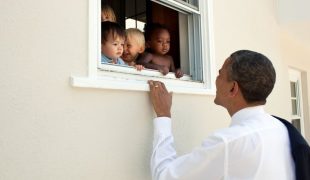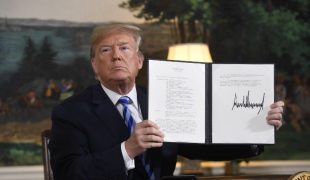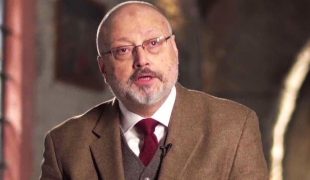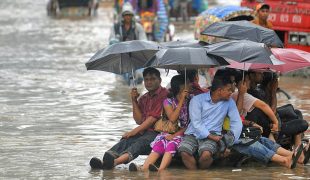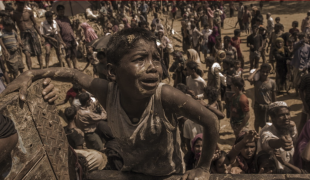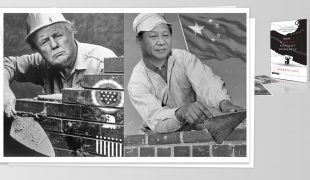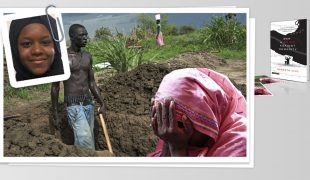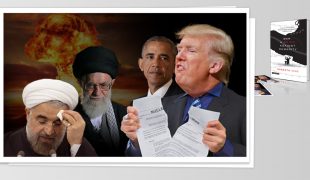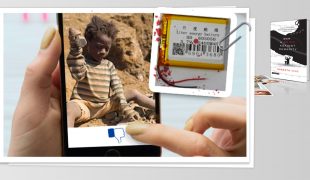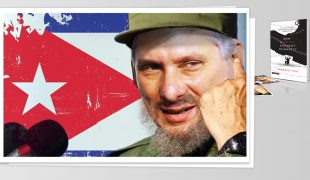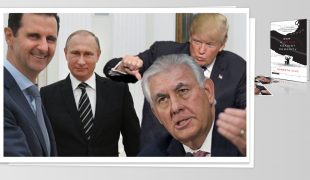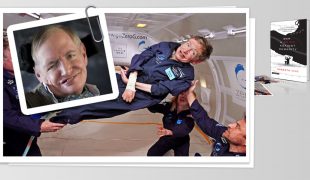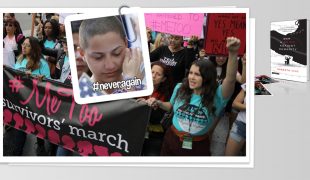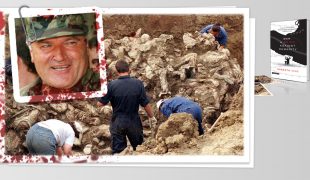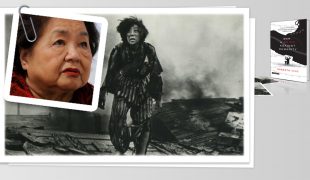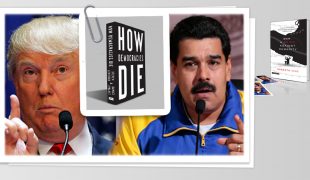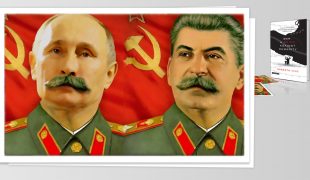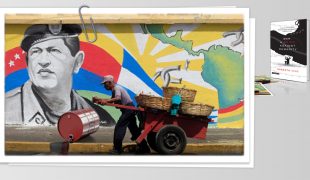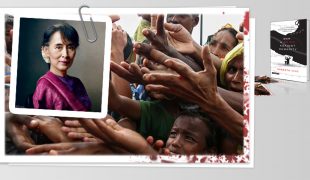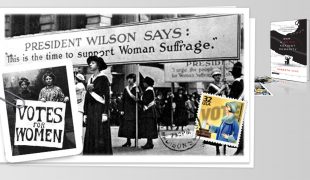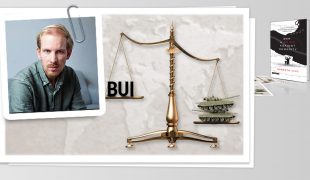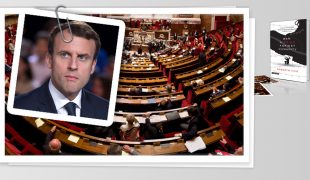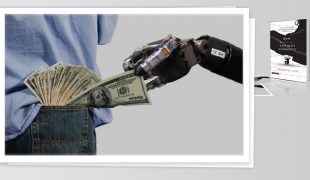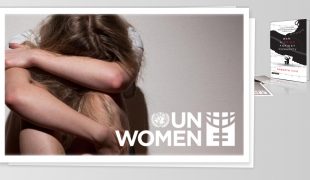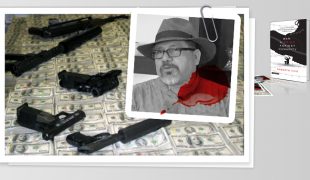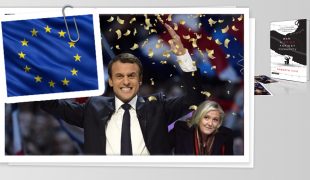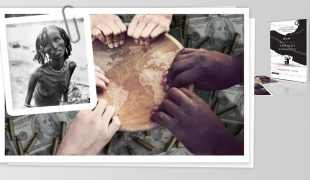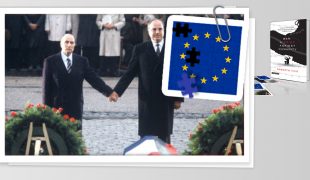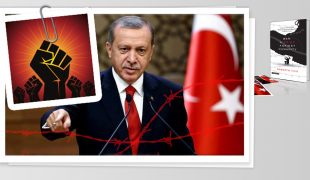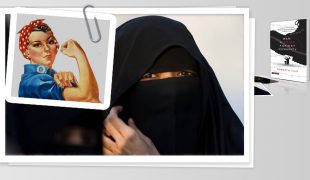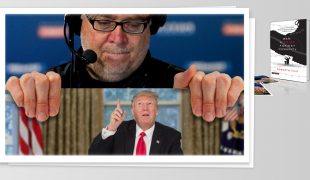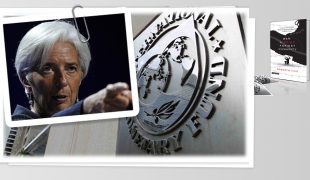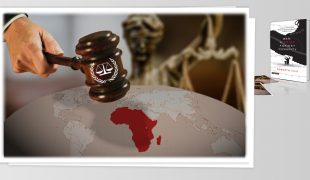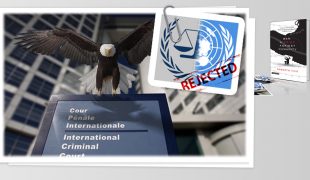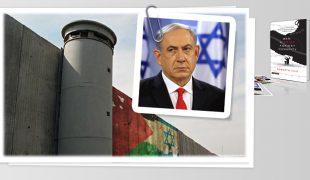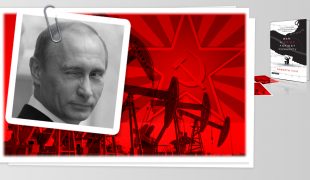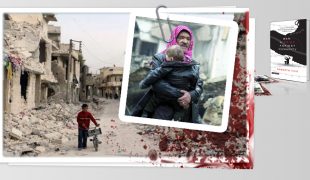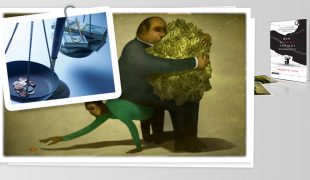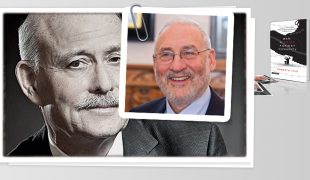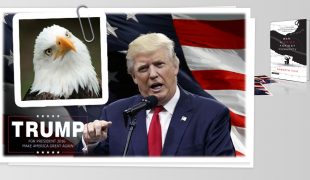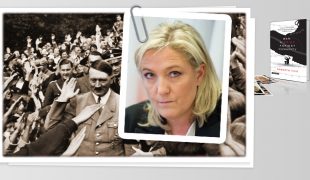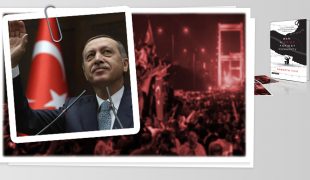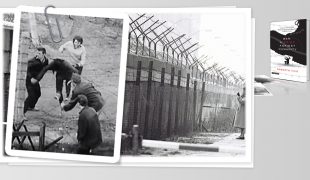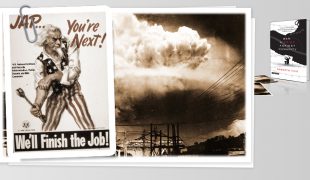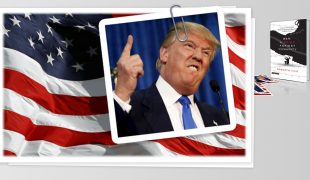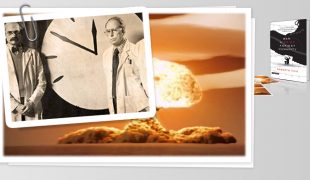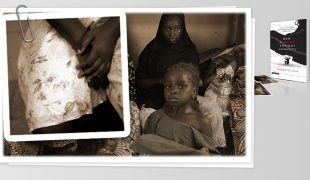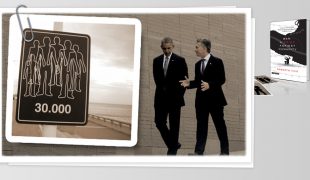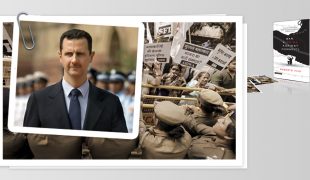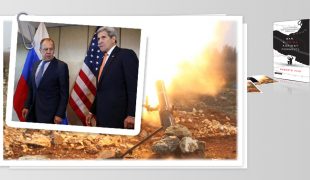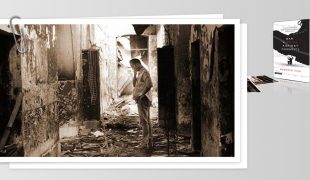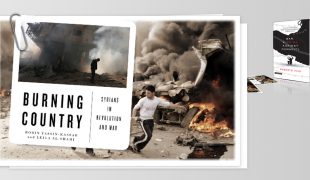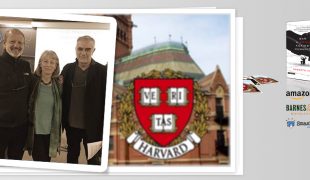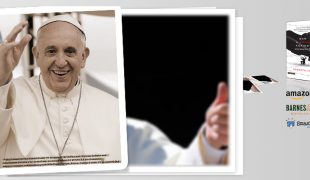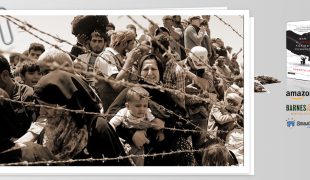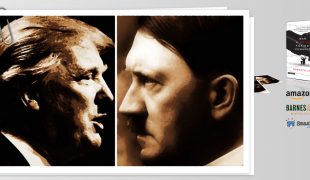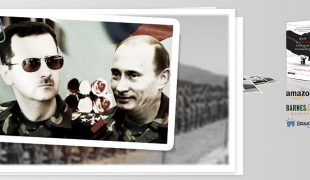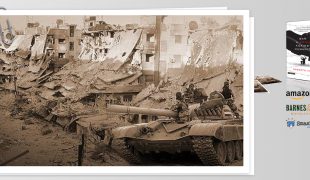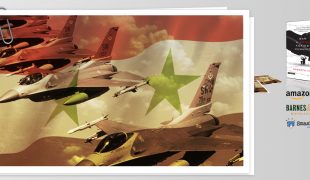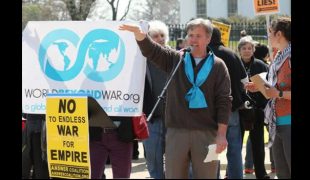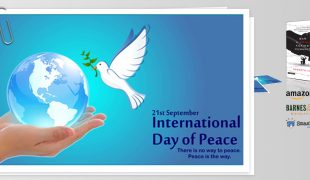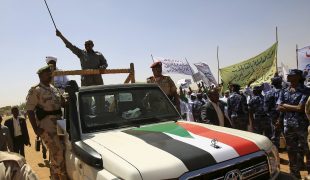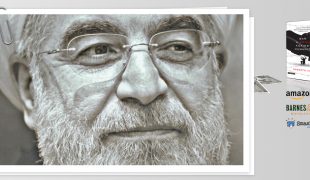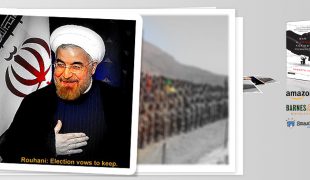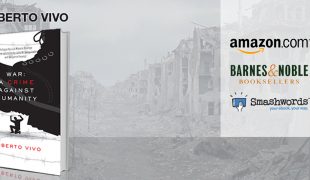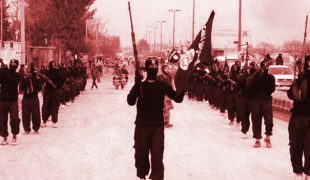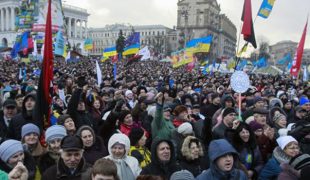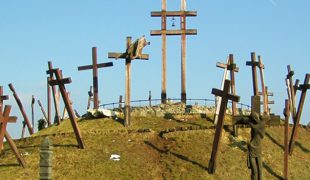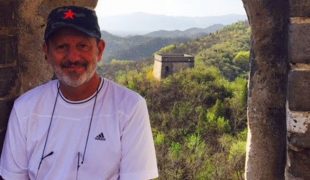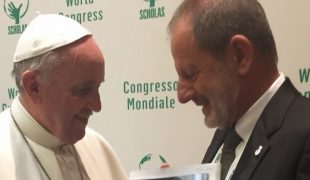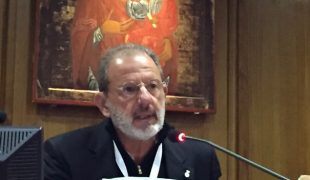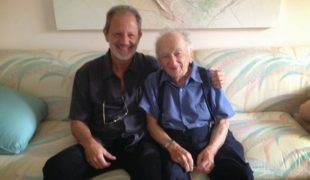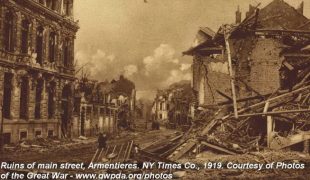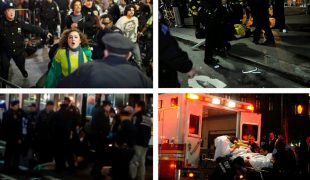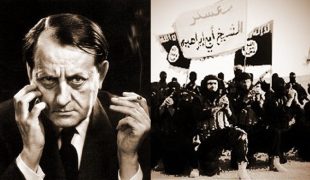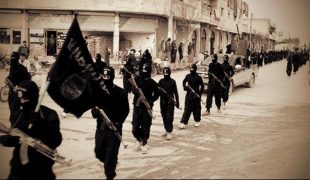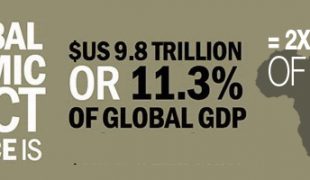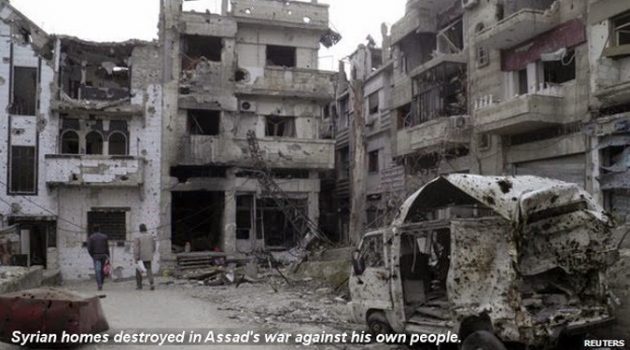
How Peace Fared in 2014
January 2, 2015
The past year has been a difficult one for world peace. This has been true not only because of the severity and escalation of civil and regional wars in different parts of the world, but also because of how certain of those conflicts have influenced international tensions and driven renewed polarization among leading world powers.
The principal concern for the year has had to do with a major deterioration in relations between the West and Russia. Riding on his bolstered popularity at home, which was powered by the economic improvements with which his government has been credited, Russian President Vladimir Putin chose 2014 to be a year of self-assertion on the world scene. Putin has been at the pinnacle of power in Russia, as either president or prime minister, throughout the first decade and a half of the new millennium. After years of leading—together with his partner in power, current Prime Minister Dimitry Medvedev—a movement toward closer ties with the West but a separate power base rooted in the ex-Soviet Union, Putin appears to have felt strong enough both at home and abroad this past year to begin flexing Russia’s muscles in international affairs.
The first place where Putin did this in 2014 was in Syria, where he drew a line in the sand that directly challenged the Obama administration in the United States. His stance in Syria was, some observers say, based on “a lesson learned” in Libya, where, in 2011, the Russian government abstained in a United Nations vote that condemned the long-standing regime of Muammar Gaddafi for its brutal repression of the popular Arab Spring movement there. The vote resulted in the establishment of a no-fly zone over Libya and laid the groundwork for Gaddafi’s overthrow. The Libyan regime had been a major buyer of Russian-made arms as well as being politically “friendly” toward Moscow. With its fall, Russia not only lost an important client but also saw Gaddafi replaced by a leadership that was far less friendly toward Moscow.
In Syria, then, where the 40-year-old Assad family regime has long constituted a major Middle East ally for Russia, Putin decided to put his foot down. When the West, led by the US, sought UN sanctions against the current Syrian government of Bashar Al-Assad, Russia used its veto power to block any such move, thus not only protecting a client whose current weapons contracts account for about ten percent of Russia’s worldwide arms sales, but also a friendly regime that plays a key part in Moscow’s naval defense strategy, thanks to the missile fleet base that the Russian Navy maintains in the Syrian port of Tartus.
Putin also helped the Assad regime hijack and scuttle UN-sponsored peace talks in Switzerland between the Syrian government and a patchwork coalition of rebels currently involved in that country’s tragic civil war, in a tactic designed to show Russia as an ostensible peacemaker even while it persisted in supplying abundant arms to the Syrian ruler, and Al-Assad as willing to talk peace as long as the rebels recognized the government’s authority, thus precluding any serious peace negotiations and virtually guaranteeing continuation of the war.
With the US-led West still seething over Moscow’s defiant stance on Syria—and continued supplying of arms to Assad, even after his regime used chemical weapons against its own people killing men, women and children—Ukraine suddenly loomed onto the international forefront. Although the crisis and subsequent armed conflict there seemed to emerge overnight, it had been a long time in the making. It started a decade ago, in 2004, with the peaceful Orange Revolution sparked by rigged elections in which pro-Russian candidate and then-Prime Minister Victor Yanukovych was declared president.
The Orange Revolution consisted of massive protests that eventually resulted in the removal of Yanukovych and the rise to office of his opponents Viktor Yushchenko and Yulia Tymoshenko. But Yanukovych regained the prime minister’s post in 2006, if only managing to retain it until 2007, when new elections were called that returned Tymoshenko to the office of prime minister.
Subsequent deterioration of relations between Tymoshenko’s government and Moscow eventually led to a financial crisis and to Russia’s embargoing all vital natural gas supplies to Ukraine. The resulting discontent led to Yanukovych’s returning to the presidency in 2010 with 48 percent of the votes.
Following that election, in a move similar to politically motivated cases tried in Russia under Putin’s heavy-handed regime, criminal charges were levelled against Tymoshenko and in late 2011, she was convicted of alleged abuse of power and embezzlement and was sentenced to seven years in prison. The European Union and credible NGOs like Human Rights Watch and Amnesty International decried the trial as a kangaroo court and her imprisonment as political. Following the current year’s so-called Euromaidan Revolution, she was released from prison and the Ukrainian Supreme Court ruled that she had committed no crime.
Over the last several years and on the insistence of Parliament, Ukraine began trying to shore up its economy, to diversify by seeking closer ties to the European Union, and to move away from preeminent ties with Russia. It also began taking serious steps toward joining the NATO military alliance. The country’s overtures were met with great support in Western Europe and with a nod from Washington. In Moscow, however, Putin was less than pleased with these developments and convinced Yanukovych to back away from a major association agreement with the European Union, deciding instead to bring Ukraine even more strongly into the Russian sphere of influence.
Yanukovych’s unilateral move away from the European Union motivated peaceful protests in February of this year, but harsh repression ordered by his government, under pressure from Moscow, led to bloody riots in which protesters fought police with every weapon at their disposal from behind barricades erected in the streets of the capital city of Kiev. Overwhelmed, Yanukovych was again forced to leave office, but this time to also flee the country and take refuge in Russia, where he actively began seeking Russian intervention.
Yanukovych’s government was replaced by a provisional administration friendly to the West, which immediately began seeking closer ties to the US and its western European allies. Moscow reacted by supporting and encouraging uprisings among members of the ethnic-Russian population in the east and south of the country against the new government in Kiev. These protests almost immediately resulted in the secession of the Crimean Peninsula and its annexation by the Russian Federation, which brought copy-cat secession movements among ethnic Russians elsewhere in the country, eventually sparking an armed conflict between Russian-backed rebels and Ukrainian troops in the Donetsk and Luhansk regions and Russian troop build-ups on the borders of those areas—a virtual state of civil war that continued in one form or another throughout the rest of the year, if with a shaky ceasefire at year’s end.
Despite effectively governing only part of the national territory, Kiev managed to hold fair and open voting that led to the rise to office of democratically-elected Petro Poroshenko, who has since sought peace negotiations with Russia and the reunification of his country, but without relinquishing rebel-held areas to pro-Russian separatists.
The implications of Putin’s attitude toward Ukraine, added to his earlier interventions in Georgia have led to the conclusion that he and his government may be seeking to eventually regain the vast power over Central and Eastern Europe that Russia lost with the fall of the Berlin Wall and the break-up of the Soviet Union that followed at the close of the 1980s. Putin has become a political wild card who many Europeans have compared to Joseph Stalin and, in terms of his disregard for international law and his increasingly evident tendency toward European expansionism, to Adolf Hitler. Indeed, Putin admits to being an admirer of Stalin and to his yearning for a Russia as powerful and opulent as it was during the era of the Russian czars, prior to the 1917 Communist revolution.
Fortunately for world peace, the West has kept a cool head in the face of Putin’s militarization of the border regions between his country and Ukraine, bringing pressure to bear on him through international economic sanctions rather than through an abrupt arms build-up in the region. And by year’s end, those sanctions and the accompanying sharp drop in oil prices were having a clearly negative effect on the scantily-diversified Russian economy—the buoyancy of which, until now, has been the key to Putin’s popularity—to such an extent that the Russian president has had to admit that his country will face hard times for at least the next two years.
The other principal threat to world peace continues to be the war in Syria, since its ripple effects have not only pitted the West against Russia—resulting, together with the Ukraine situation, in the worst deterioration of East-West relations since the Cold War era—but have also spread combat or the threat of mass violence to other areas of the Middle East, especially since the swift rise of the erstwhile little-known radical Muslim terrorist group called the Islamic State of Iraq and the Levant or ISIL (a.k.a. ISIS or IS).
Three years into a conflict that, like that of Ukraine, began with peaceful protests against the regime in spring of 2011 and morphed into a full-fledged civil war following a brutal government crackdown on dissent, the Syrian Civil War (something of a misnomer considering its international consequences) is currently the world’s worst armed confrontation. Latest figures show a death toll of at least 191,000 and perhaps as many as 250,000, many of them civilians (and at least 11,000 of those, children). Hundreds of thousands more have been injured and at least 9 million people have been displaced by the fighting—over 3 million having fled to neighboring countries and another 6 million having been left homeless and displaced within Syrian territory. The government, which has carried out endless bombing raids on populated areas using shrapnel-laden barrel bombs, is blamed for the vast majority of civilian deaths.
Meanwhile, the greatest advantage in this ongoing war has been gained over the past year by ISIL, the armed radical Islamist organization that has worked both sides against the middle in Syria. ISIL was left largely alone by the Syrian regime in the beginning, since, originally a branch of the Al Qaeda terrorist organization, it quickly became a rogue force within the opposition that at first joined the rest of the less than cohesive coalition fighting Assad but later started taking over the ground conquered by the coalition for itself, while confiscating arms and supplies by force from its erstwhile coalition partners. Eventually, the rest of the opposition worked out a largely informal non-aggression pact with ISIL, mainly because they couldn’t fight Assad and ISIL at the same time and wanted to concentrate on their main goal of overthrowing the Assad regime. This freed up ISIL even further to make good on its advances.
With a firm foothold in Syria, holding a third of the country’s territory and enough gas and oil assets to continue to finance its “holy war” aimed, ultimately, at setting up a radical Islamist caliphate in a large portion of the Middle East, including Israel, ISIL expanded into Iraq, where it quickly overcame resistance from pro-Western government troops who let the extremist group gain ground to within striking distance of the capital city of Baghdad. Greatest resistance to the group’s advances has been provided by Kurdish fighters, who have stubbornly opposed ISIL’s attempts to take over their territories in Syria and Iraq.
A particularly virulent strain of Islamist terrorism, ISIL has shocked even other extremist organizations with its indiscriminate and barbaric violence—including mass murders of civilians; beheadings; the group’s official, written approval of the kidnapping of women and girls to be used as sex slaves; the high-profile murdering of aid workers and journalists; and the mass slaughter of prisoners of war. Its suicide psychology has meant that, despite punishing airstrikes on its positions by a US-led strategic coalition including air support from some Arab countries, it has so far been impossible to seriously undermine ISIL’s strength in the region, where it is considered a major fundamentalist threat to freer societies.
These, then, in 2014, were areas of the world that posed a clear and present danger to world peace. A few other major areas (out of nearly thirty ongoing armed conflicts worldwide) where peace remains persistently elusive include:
– Afghanistan: This year NATO ended its combat role in the country after 13 years of intervention. Insurgency, however, continues to be an ongoing problem. One European security report summed up the situation as follows: “…Taliban insurgency remains unbroken. The Afghan National Security Forces are still not fully manned and remain unevenly untrained while the Afghan government suffers heavily from widespread corruption…The list of problems that should ideally have been resolved long ago is long. The pertinent question is therefore: What will happen post-2014 when handover is complete and [international security forces have] left the country?
– The Gaza Strip: Tensions between the State of Israel and the Palestinian guerrilla organization, Hamas, careened out of control in 2014. Hamas launched hundreds on rocket attacks on Israel, which, thanks to a US-supplied missile-destruction system known as Iron Dome, were largely ineffectual. In reaction, Israel not only destroyed major Hamas rebel targets but also unmercifully pounded civilian areas of the Gaza Strip where non-combatants were basically captive between the two warring sides with nowhere to go. When the month of mutual aerial attacks ended, Israel had lost 64 soldiers and five civilians (four Israeli citizens and a Thai visitor), while the tragedy in the Gaza Strip was far more dire: over 2,100 dead (more than 1,400 of them civilians and nearly 500 of those, children), thousands of homes and businesses leveled and the area’s infrastructure in ruins. Although the world appeared to be divided between those who felt Israel was “merely defending itself effectively” and others who felt its actions against the civilian Palestinian population were a monstrous act of genocide, the clear truth is that continuing enmity between a radicalized guerrilla organization and an obstinately militarized Israeli government is placing two innocent civilian populations at constant risk, and world leaders should stop ignoring the Israeli-Palestinian question and start seeking active peace negotiations based on a clear-cut two-state solution.
– Central African Republic: As of mid-year 2014, over a half-million people remained internally displaced due to fighting in the country’s ongoing civil war. Almost daily clashes continued to displace thousands of others already living in dire conditions. As opposing factions struggled for control of different areas in fighting that threatened to spill over into other countries, the situation grew increasingly unpredictable.
– South Sudan: Here there is an ongoing conflict that started a year ago and that involves the South Sudanese government supported by Uganda against a coalition of several rebel insurgent groups armed by Sudan and seeking to overthrow the government. Some 10,000 people have died in the conflict to date and its international implications are worthy of concern.
– Libya: More than three years after the NATO-backed overthrow of long-standing dictator Muammar Gaddafi, the country remains chaotic, with Islamist militant insurgents seeking to wrest control from a less than unified government whose authority is undermined by powerful militias.
– Nigeria: The Islamist group Boko Haram has killed more than 5,000 civilians here since 2009 and more than 2,000 in 2014 alone. Its name is its motto (Western Education Prohibited) and it typically attacks soft targets such as women, girls, schools and civilian villages. It is the face of fundamentalist extremism in this African nation and its noxious influence has spread to other countries in the region—Chad, Niger, Cameroon.
As citizens of this world where war continues to be considered a political commodity to be freely dispensed as a “solution” for the satisfaction of political appetites and peace a scarce luxury to be enjoyed only in brief respites between confrontations, most people feel that all we can do is pray for peace and hope against hope for at least some wars to end. But I’d like to propose a 2015 New Year’s resolution not only to my readers but to people everywhere, to stop accepting war as inevitable and to start actively building an awareness of the possibility of peace. That means actively refusing to support any and all aggressive war efforts, demanding peace education in our schools and societies as a whole, supporting diplomacy and sanctions rather than armed intervention, learning about and applying mediation and conflict management everywhere from our homes to our businesses to our communities and nations.
If world peace is ever to be achieved, we have to quit believing that seeking it is a futile effort. Thinking daily about what we as individuals can do to promote peace is the first drop in what could end up being a spreading tide of peace. If world peace is to be a trend, like all trends, it has to start somewhere. Let it start with us.
I wish you PEACE in the New Year.

